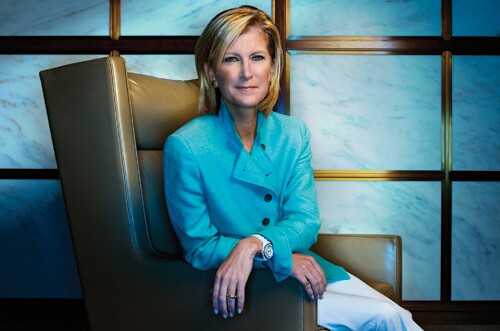
1. Mary Callahan Erdoes
CEO, JPMorgan Asset Management
Sometimes being the most powerful person in an industry means facing the greatest scrutiny. For Mary Callahan Erdoes, running one of the most reliably profitable businesses at the country's largest banking company now means weathering part of the regulatory storm sweeping over JPMorgan Chase.
Erdoes has spent the past four years as head of the company's asset-management division, which handles more than $2 trillion in assets. Her group frequently appears on lists of top money managers, and has been a steady source of profit for its parent company at a time when most in the banking industry are struggling for reliable returns. Erdoes, age 46, is part of Chairman and CEO Jamie Dimon's 12-member operating committee, and a pillar of stability at a company that traditionally has rotated senior executives through various lines of business. She has spent 17 of her 24 years in the industry at JPMorgan, all of them in asset management or private banking, and has earned widespread respect for her ability to handle the money of pension funds, central banks, foundations and wealthy clientele.
"Our asset management business delivers consistently strong results, and Mary's leadership is the driving force behind that performance," says Dimon. "She has an incredibly deep understanding of our clients' needs and the strategic vision to deliver solutions for them. She's an extremely talented leader."
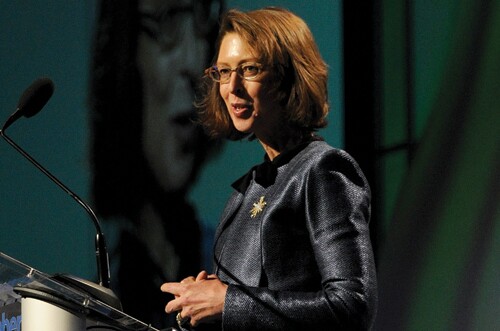
2. Abigail Johnson
President, Fidelity Financial Services, Fidelity Investments
Last April, Abigail Johnson spoke with a group of 350 brokers and registered investment advisers about the strategy and innovation that lie ahead for Fidelity Investments. What emerged out of the executive forum in Naples, Fla., was an excited boost of confidence.
Many were hearing Johnson for the first time since she was made president over all of Fidelity's core businesses, a promotion that firmly entrenched her as the eventual successor to her father, Edward "Ned" Johnson III, as chairman and CEO. "She is taking the reins as a visionary for Fidelity," says Doug Dannemiller, principal of Duxbury, Mass.-based Dannemiller Analytics & Consulting. "And I think we've seen that transition for the last several years."
Along with its renewed focus on core assets like brokerage, Fidelity is breaking down departmental silos in products and customer segments, as well as moving the firm (which has more than $3.9 trillion in assets under administration) further down market to target small businesses and midsize clients that need help managing 401(k) or other investment plans. There are even thoughts of introducing video games to help advisers educate clients, particularly Gen Y/Gen X types, on investment decisions. Johnson, 51, has been with Fidelity, the firm her grandfather founded, since 1988.

3. Ruth Porat
CFO, Morgan Stanley
With Morgan Stanley taking over sole ownership of the Smith Barney franchise, Ruth Porat's already heady Street influence has grown even more authoritative.
The brokerage business, formerly operated as a joint venture with Citigroup and now part of Morgan Stanley Wealth Management, will deliver fee-based revenue from more than 16,000 financial advisers and is expected to gain $57 billion in additional deposits by 2015.
As CFO, Porat will be a key decision-maker on how to put those deposits to work. (The firm will be one of the 10 biggest U.S.-based depository institutions after the transition.) That's in addition to her usual role of overseeing capital, liquidity, funding, and compliance with capital requirements for Morgan Stanley, not to mention her work earlier this year in obtaining board approval for a $500 million share buyback.
Even outside Morgan Stanley, where she has worked for 26 years, Porat continues to build a powerful industry presence in her ongoing efforts to improve public trust in the financial system. In January at the World Economic Forum in Davos, she described stress-testing and additional transparency as necessary steps to enhancing stakeholders' faith in U.S banks - and spoke of a need for all corporate leaders to set the "tone from the top."
Porat is a member of the U.S. Treasury Borrowing Advisory Committee, which assesses macroeconomic views and makes recommendations on technical issues related to debt management. She also is a trustee at her alma mater, Stanford University.

4. Lisa Carnoy
Head of Global Capital Markets, Bank of America
Beyond mountains, there are mountains. This Haitian proverb is one of Lisa Carnoy's favorites. She quoted it last April at a Harvard Business School forum where she described the anxious three months she spent at Merrill Lynch in late 2008 as the firm prepared for its sale to Bank of America.
Pregnant with twins and unsure of her own future at the company, Carnoy still had to convince her team to stay focused on clients despite the fact she could not promise anyone their long-term security at the new firm. She took solace, and shared with her team, that if you take small steps toward goals without being daunted by how many steps it may take to reach them, "you will persevere. Don't be daunted by the fact there's this very tall mountain in front of you."
Persevere she has. Carnoy, who started at Merrill in 1994, has emerged as a strategist behind some of the largest IPO and block-trade deals since the financial crisis, through her Global Capital Markets team at BofA.
Her division's work on the carve-out of Pfizer's Zoetis unit helped produce the largest health care industry spinoff in a decade and the largest IPO ($2.2 billion) since Facebook's offering. And BofA Merrill was joint bookrunner on an $11 billion debt issue by Brazil's Petrobras, which was a record-size offering for an emerging-markets issuer, and the fifth-largest dollar-denominated corporate debt sale ever. According to the league tables from Dealogic, BofA Merrill was among the top three institutions in leveraged loans, investment-grade corporate debt, asset-backed securities, convertible debt, mortgage-backed securities and syndicated loans in the first quarter.
Carnoy is a trustee of Columbia University and chairs BofA's Columbia recruiting team. She also is the executive sponsor for the Women's Leadership Council within the company's global banking and markets group. This year she received the Merit Award from the Women's Bond Club, and she is a strong supporter of Jumpstart, a national nonprofit focused on children's literacy.
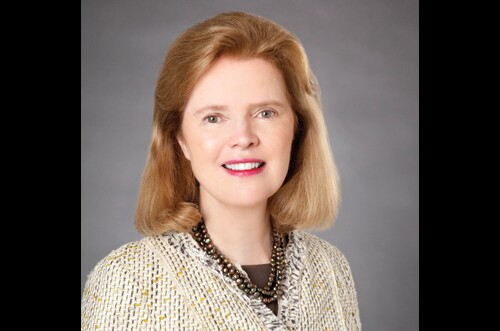
5. Barbara Byrne
Vice Chairman, Investment Banking, Barclays
"By nature, I'm an optimist. After 36 years in this business, I have to be."
That's Barbara Byrne speaking last year at a Fortune magazine-sponsored panel on lessons learned from the financial crisis. Though she lived through the downfall of her old firm, Lehman Brothers, and still sees rough times ahead for the global economy, Byrne maintains her faith in the long-term U.S. economy, specifically in energy (one of the sectors she serves at Barclays). She says an evolution in oil and gas production is fast-tracking the United States to energy independence within a decade and returning jobs and facilities to the country in the process.
Under Byrne, Barclays' investment banking division finished the first half of 2013 in the top three on Dealogic's league tables for U.S. mergers and acquisitions and global debt capital markets, and it was a bookrunner on seven of the 10 largest initial public offerings.
Byrne is supportive of rising women at Barclays, often bringing female staff members to client presentations and meetings. "I work with women on my team and then say 'over to you' in the session," Byrne tells American Banker Magazine. "Into the deep water they go, and they always swim. Confidence is born."

6. Diane Offereins
EVP; President of Payment Services, Discover Financial Services
Last January, Discover and Facebook became friends.
In a partnership put together by Diane Offereins' team in payment services, Discover teamed up with the social media network to roll out the Facebook Card, a prepaid product that can be used to send gifts (such as dinner at Olive Garden) to friends via their Facebook profile.
It was Discover's second partnership with an emerging payments player. Last August, the company announced a deal with PayPal that's expected to help the eBay-owned network get access to 2 million retail point-of-sale outlets.
At the same time, Offereins continues to build business through more traditional channels. Last year the company expanded the list of high-profile merchants accepting Discover/Diners Club cards, including Neiman Marcus and In-N-Out Burger, and ATM acceptance for Discover/Diners Club recently reached a milestone of 1 million outlets globally.
It now has 98 percent of the reach of MasterCard and Visa, and beats out American Express, in the number of U.S. merchant outlets accepting its cards. And in May, Offereins' division served up another groundbreaking deal in a worldwide business payments agreement with business-to-business commerce network Ariba that enables businesses to cut down their use of paper checks.
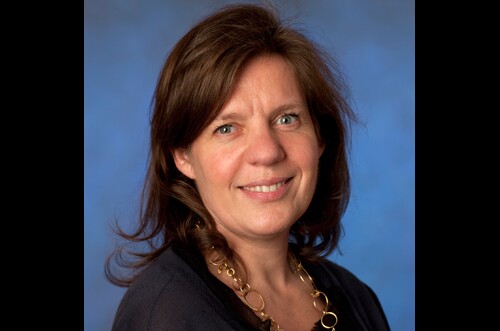
7. Isabelle Ealet
Co-Head of Securities, Goldman Sachs
Isabelle Ealet went into her current role at Goldman early last year with a lot of question marks in the air. Not over her, but over why her predecessors as global co-heads of securities-longtime Goldman partners Edward Eisler and David Heller-both departed the bank at the start of 2012. (Speculation ran from salary issues to a blocked succession path up the executive chain.)
But big things were expected of Ealet, the shop's "queen of commodities," who had helped make major revenue drivers out of the firm's commodities, fixed income and currency trading.
Running the securities side of the house with co-head Pablo Salame, she helped Goldman's institutional client services division (the trading portion of the securities business) generate net revenue of $9.5 billion in the first half of 2013, down slightly from $9.6 billion in the same period of 2012, while also focusing on compliance issues, as many Dodd-Frank rules on commodities and derivatives kicked into gear this year.
Ealet, a Goldman partner since 2000, sits on the firm's management, risk, principal investments and securities committees.
A French national, she has served as an advisor for the French Embassy in the United Kingdom and also is a trustee of the Friends of the French Institute charity, promoting French culture in London.
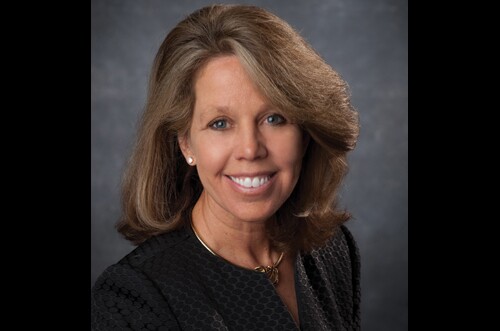
8. Maliz Beams
CEO, ING U.S. Retirement Solutions, ING U.S.
The color is still going to be orange, but there's a lot changing at ING U.S. Retirement Services under CEO Maliz Beams.
Last May the firm netted $1.27 billion in an initial public offering-the largest IPO in the financial services sector since 2008-and next year it will change its brand name to Voya, a takeoff on "voyage" that was selected from among more than 5,200 suggested names.
As the retirement division casts itself away from the ING USA organization, it's heading out with plenty of steam. Beams' unit reported earnings of $192 million in the first quarter, a 20 percent increase from a year earlier. Sales from its network of nearly 23,000 advisers and distributors were $5.8 billion, up 23 percent, and as of March it had over $345 billion in assets. The unit serves nearly 48,000 institutional clients and more than 5 million individual retirement plan investors, and about 417,000 annuity customers.
Beams, former CEO for individual and institutional services of the not-for-profit TIAA-CREF retirement fund, is active with several outside organizations, including the New England Aquarium, Junior Achievement and Mount Auburn Hospital.
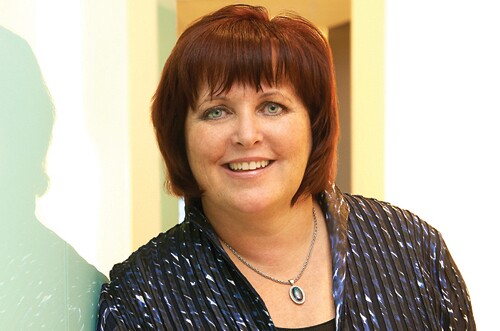
9. Margaret Keane
President and CEO, GE Capital Retail Finance; CEO, GE Capital Retail Bank
Margaret Keane has spent the last two years readying GE Capital Retail Finance for the virtual worlds of its digitally active customers.
It acquired online deposit-taking capabilities when it purchased MetLife Bank's $6.4 billion deposit business this year. It also brought forth major mobile and e-commerce service expansions for the commercial consumer financing programs it services for the likes of Wal-Mart, Lowe's, Gap and JCPenney.
So far, so good: customers now generate 4 million mobile logins a month and about 10 percent of them use mobile devices exclusively for account interaction, compared with less than 5 percent in April 2012.
While building out digital tools, Keane this year also enhanced the personal touch with her employees. Last January, she began holding weekly town hall meetings live, via video streaming, to her staff of more than 8,500. Keane takes part in live Q&A's both on the monitor and during site visits she makes to GE Capital offices, where she can view firsthand some of the employee development and education programs she has initiated. One example, called Develop You, is an internal program of quarterly webcasts and events to spread awareness of career development opportunities.
The efforts appear to be succeeding, as the business recently received some of the highest ratings across the company on an internal employee opinion survey.
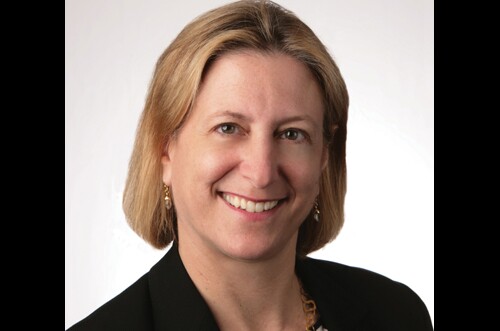
10. Nicole Arnaboldi
Vice Chair for Asset Management, Co-Head of LAMCO, Credit Suisse
This summer it was reported that Credit Suisse's Nicole Arnaboldi would be leading a spin-off unit servicing the assets of DLJ Merchant Banking Partners, a Credit Suisse affiliate, which according to Bloomberg was in talks to be sold by its parent to British private equity firm Coller Capital. But Credit Suisse says Arnaboldi has no plans to leave the firm, where her responsibilities extend well beyond managing the investment committee of the New York-based DLJ unit. Arnaboldi is vice chair for asset management at Credit Suisse and co-head of the firm's legacy asset management company, overseeing illiquid investments in areas including private equity. She also is chairman of Asset Management Finance, a Credit Suisse majority-owned subsidiary that takes stakes in long-only and alternative asset managers.
Arnaboldi has been with Credit Suisse since 2000, following its merger with investment bank Donaldson, Lufkin & Jenrette, where the Harvard graduate (law degree and MBA) earned her spurs in private equity and venture capital. She currently serves on the Federal Reserve Bank of New York's investors advisory committee on financial markets, and is on the board of New Yorkers for Children, an advocacy group supporting children in the state's foster care program.
(This profile has been updated to reflect comments from Credit Suisse indicating that Arnaboldi does not plan to leave the firm.)

11. Marie Chandoha
President and CEO, Charles Schwab Investment Management
A nature lover since her childhood in upstate New York, Marie Chandoha is a diehard preservationist-half of her family's Sonoma County ranch land has been set aside as a conservatory trust to restore the river banks and forest.
She's also driven to preserve low costs for clients, as chief of Charles Schwab's investment management division. Since taking over in 2010, Chandoha has directed her team to slash the operating costs of its 15 exchange-traded funds and charge the lowest fees in their particular ETF categories.
The result is an ETF business that has grown from $2.7 billion in assets under management to $12 billion as of this May. That's out of a firm-wide total portfolio of $223 billion, including 76 mutual funds that Schwab operates.
Schwab does well in rankings. This past year, six of the firm's funds took awards for best 5- or 10-year track record, and 11 were rated top 10 funds in their categories by Morningstar, Zacks, S&P and Lipper. Chandoha, a 1983 Harvard graduate with a degree in economics, came to Schwab from BlackRock, where she was global head of the fixed-income business.
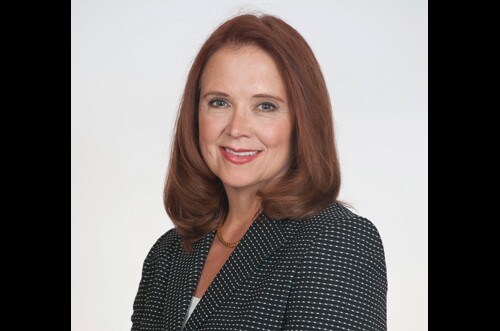
12. Charlotte McLaughlin
President and CEO, PNC Capital Markets, PNC Financial Services Group
Cost control is a mantra for Charlotte McLaughlin, who prods her PNC Capital Markets managers and employees to be as sparing as possible when it comes to business expenses (watching the travel budget, cutting out redundant costs between departments, and so on). The result is a flattening expense structure that is producing an improved efficiency ratio as revenues rise.
But McLaughlin does not impose much of the belt-tightening directly. She leaves much of the cutting to her managers' discretion, allowing business line leaders to determine how they will meet their expense goals. The savings results have been part of a 14 percent annual compounded growth rate for PNC Capital Markets-and validation of McLaughlin's strategy to empower staff with decision-making authority that encourages managers to treat their department's money as they would their own.
On the revenue side, she is championing new analytics providing detailed reporting on the reach and effectiveness of PNC's products and services. Employees are aided by ongoing training that is, in part, based on relationship manager and portfolio performance metrics showing where they might need a boost.
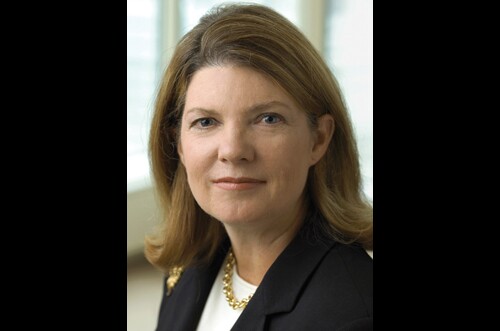
13. Candace Browning
Head of Global Research, Bank of America
For the second year in a row, Candace Browning saw her Bank of America Merrill Lynch team ranked the top global research firm by Institutional Investor, based on surveys of buy-side firms on which Wall Street analysts provided the most helpful insights in a dozen countries and regions.
BofA, for example, was one of the first firms last fall to highlight Japan as an attractive investment in both the equity and fixed-income asset classes, driving revenue for itself and for clients.
One of Browning's strategies was to improve the connectivity of BofA Merrill Lynch offices worldwide, to encourage the flow of ideas and information. The use of Telepresence, a high-end videoconferencing technology, enables junior analysts, for example, to meet with senior staff anywhere in the world via the face-to-face linkup. It's aided the development of the firm's growing Asia presence, where the group has been integrating new economic research products, including foreign exchange.
Browning, who has an MBA from Columbia, remains actively involved in women's leadership efforts. She is part of the Global Ambassadors partnership that BofA has with Vital Voices to provide mentoring to women leaders in emerging nations. This year Browning traveled to India for a Global Ambassadors program involving more than 250 female entrepreneurs and small-business owners in New Delhi and Mumbai.
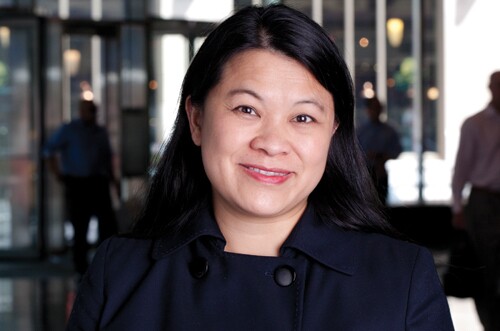
14. Joyce Chang
Managing Director, Global Head of Fixed Income Research, Corporate and Investment Bank, J.P. Morgan
If investors think emerging markets are the obvious go-to for yield and long-term growth, Joyce Chang has some sobering news for them.
Although underdeveloped markets account for about 20 percent of global capital investment flows-compared with 5 percent in the 1990s-Chang notes that many signs point to an asset class reaching its maturity. "If you actually look at credit ratings and the sovereign spreads for emerging-markets countries, they are well below many European countries," Chang said at a Council on Foreign Relations panel last spring. That makes intelligence and forecasting about emerging-market economies all the more critical, and a challenge that Chang has gamely taken on in her newly expanded role as global head of fixed-income research at J.P. Morgan's merged corporate and investment bank operations.
In addition to global credit research, she now oversees research on currencies, public finance and securitized products. Chang and her emerging markets research team have been ranked No. 1 for three straight years by Institutional Investor. Her priorities this year include working more closely with multinational corporate clients, and with sovereign wealth funds looking to diversify their asset allocation. Chang is on the Council of Urban Professionals and the steering committee for the J.P. Morgan Investment Bank Women's Network. She is involved in a range of foreign affairs groups, including the Council on Foreign Relations.
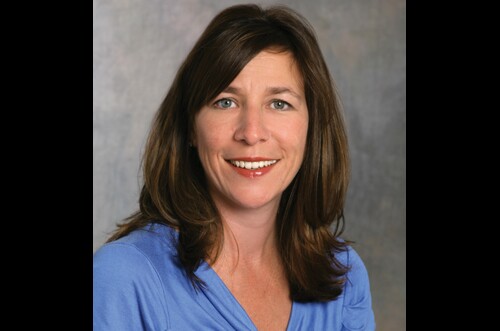
15. Julie Caperton
Head of Asset Backed Finance and Securitization, Wells Fargo Securities
The structured finance and securitization businesses that Julie Caperton runs at Wells Fargo are some of the most complex businesses in the company and some of the most profitable.
Last year, her group saw a 34 percent increase in revenue as it aggressively expanded its balance sheet and landed at or near the top of the league tables in U.S. subprime auto-loan issues and global commercial mortgage-backed securities. Because of the nature of the asset-backed business, she also manages a rail company owned by Wells, along with joint ventures in shipping and commercial aircraft. Caperton has been called on by CEO John Stumpf, CFO Tim Sloan and senior Wells executives in mortgages and consumer products to lead or advise on projects outside her group that call for expertise in securitization or structured finance.
Last year, her group's process for complying with Anti-Money Laundering and Know Your Customer requirements were identified by Wells' corporate risk team as being best in class, and became the benchmark for all of the company's wholesale businesses.
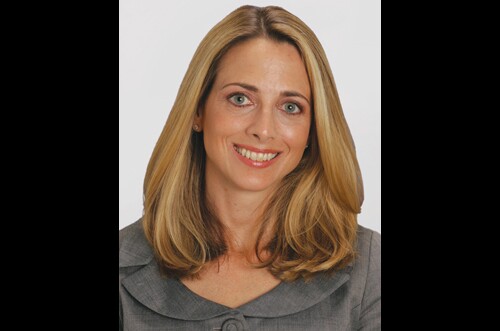
16. Julie Monaco
Global Head of Public Sector, Bank Services Group, and AML/KYC , Institutional Clients Group, Citigroup
Not long ago, the mere mention of "1073" at a payments conference was enough to start a rumble.
The controversial Dodd-Frank rule enacting new requirements on remittance payments and reporting guarantee of receipt of funds, intraday liquidity requirements, fee and exchange-rate disclosures had some institutions considering whether to quit the business.
But much of that concern has been allayed by the amended final rule (now with optional fee disclosures, and exemptions for small remittance providers), and by the work of wholesale service providers like Citi's Institutional Clients Group and its head of public sector and bank services, Julie Monaco.
She and Citi, which work with 400 of the top 500 banks globally, have placed a major focus on helping clients prepare for forthcoming deadlines, including this month's enactment of the 1073 requirements. Another major regulatory focus in the past year was the Dec. 31 expiration of the Federal Deposit Insurance Corp.'s unlimited deposit insurance coverage, for which Monaco used a two-pronged strategy of client education and new product rollouts to help fill the void.
Monaco's role at Citi evolved this year when Citigroup CEO Michael Corbat reorganized Citi Transaction Services, where Monaco had been North America region head and the global head for the public sector, bank services and marketing groups. In her new role, she is part of Citi's investment bank.

17. Diane Schumaker-Krieg
Managing Director, Global Head of Research, Economics & Strategy, Wells Fargo Securities
It's not often that a Wall Street research firm turns to the CIA, but Diane Schumaker-Krieg is always intent on finding an edge.
Last year she enlisted former CIA and FBI behavioral consultants to help her team sort out and interpret the body language and other nonverbal cues from executives at the public companies Wells Fargo covers.
It might have been overkill, considering Wells' already strong track record. But in a challenging year that saw many competitors struggle with ongoing declines in equity commissions-leading to layoffs and mergers in the field-innovation has helped Wells maintain its standing as a top stock picker, high-grade bond researcher and earnings forecaster, while its economics team has won accolades from Bloomberg, MSNBC and the Federal Reserve Bank of Chicago.
In the past year, Schumaker-Krieg's team published in excess of 20,000 reports, and drew 1,000 corporate clients and 5,000 institutional investors to its conferences. The research unit has expanded its role as an enterprise "think tank" for the bank. The energy research team, for example, has explored the natural gas boom (including the impact of fracking) for Wells Fargo. And Schumaker-Krieg has an expanded role of her own, having added credit and FX strategy to her responsibilities in the second half of 2012.
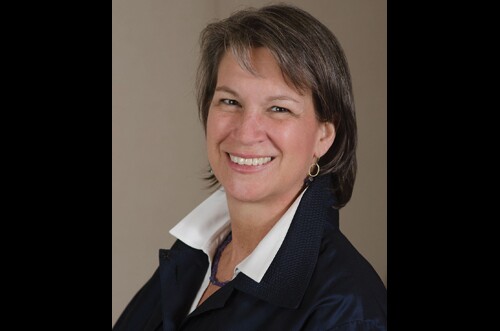
18. Suni Harford
Managing Director, Head of North America Markets, Citigroup
Risk was the main order of business for Suni Harford last year. In her role directing sales, trading and origination for Citigroup's global securities and banking unit, she was charged with identifying franchise risk issues for each product line.
Her teams were also performing assessments on the implementation of Dodd-Frank rules, working with clients, regulators, Capitol Hill staff and internal units on the impact of regulations that kicked in last year. Performance-wise, global securities and banking was able to build market share. It was enough to produce 3 percent year-over-year growth in revenue.
In the first quarter, Harford was named to the board of the Depository Trust and Clearing Corporation. She also serves on Citi's Pension Plan Investment Committee and is actively involved in military veterans' issues. In addition to helping establish the company's Citi Salutes initiative, she drove Citi's founding membership in Veterans on Wall Street, an industry-wide effort, and helped launch a mentoring program for military spouses through the Business and Professional Women's Foundation.

19. Kathleen Murphy
President, Personal Investing, Fidelity Investments
Kathleen Murphy keeps three catch-phrase signs in her Boston office at Fidelity Investments. There's the encouraging bon mot ("Attitude is Everything"), a semi-serious admonition ("No Whining Allowed") and a bumper sticker, visible only when Murphy lifts the anti-whining nameplate off her desk. It reads, "Well-behaved women rarely make history."
"With those three signs you can sort of sum up my philosophy," says the president of Fidelity's retail-focused personal investing unit. Staying positive, empowering people and being a risk-taker who makes a difference are guideposts that have steered Murphy through a 25-year career in financial services and benefits.
At Fidelity she oversees a unit that has $1.28 trillion in assets under management, and is a turn-to analyst for cable network business programs seeking expertise on the individual investor market. That proficiency does not just come from her background. (She is a lawyer who once served as CEO of ING U.S. Wealth Management.) Murphy also personally listens to 20 hours a month of customer service calls to Fidelity, absorbing the questions and worries on customers' minds. The insight is meant to inform the product and service offerings at Fidelity, which Murphy says will increasingly include more adviser-centric models for personal investors desiring more professional help in monitoring their portfolios' performances.

20. Katia Bouazza
Co-Head of Global Capital Markets for the Americas, HSBC
For three consecutive years, HSBC has ranked first in Bloomberg's Latin American bonds league table under the guidance of Katia Bouazza, who has earned one of the highest profiles of any investment banker, male or female, in the region.
She's attracted attention with recent deals recognizing renewed investor appetite for high-yield Latin American debt. (Her success with the year's first corporate offering of resettable, perpetual notes from the region essentially reopened the previously static market for this type of issuance.) Recently she's organized "missions" to Asia, putting key Latin American companies in front of potential Asian investors. She's also made such introductions in reverse, bringing investors to various parts of Latin America.
Inside HSBC, Bouazza is known as a long-term relationship builder whose authority with clients in the bond world has helped HSBC also win business in areas such as equities and mergers and acquisitions. She is active in the bank's women's leadership programs, and in nonprofits such as Worldfund, which provides grants to improve English literacy among Latin America's poor.

21. Jennifer Steans
Ceo, Financial Investments Corp.
Jennifer Steans spent her first two years out of college as a high school math teacher and later was a consultant at Deloitte & Touche, concentrating on the finance and health care sectors. But being the daughter of prominent Chicago banker Harrison Steans, she soon was attracted to the opportunity to get into the family business.
In 1994 she and her father co-founded Financial Investments Corp. to handle the family's substantial fortune and to explore bank investment opportunities that led to ownership stakes in both the $2.7 billion-asset USAmeriBank in Florida and the $5.9 billion-asset Cole Taylor Bank in Chicago.
The Cole Taylor purchase put the Steans family back in familiar territory. (The elder Steans was chairman of the former LaSalle Bank, now part of Bank of America). Jennifer Steans, who majored in math at Davidson College and has an MBA from Northwestern, now sits on the boards of both USAmeriBank and Cole Taylor. In July, MB Financial announced a merger with Cole Taylor's holding company. Steans will serve on the MB board.
Steans' nonprofit work includes a seat on the board of the Chicago Foundation for Women, and she is a past chair of Leadership Greater Chicago, a program to develop civic leaders from diverse backgrounds.
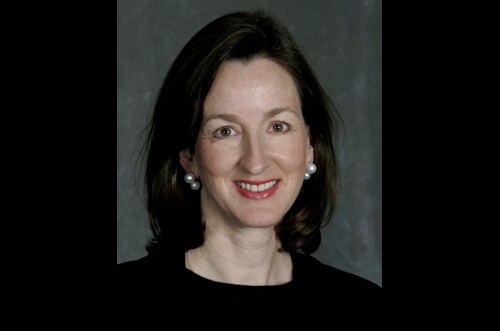
22. Catherine Keating
Head of Investment Management Americas, J.P. Morgan
Two years ago, JPMorgan Chase asked Catherine Keating to transfer her private bank experience over to the institutional investment side of the house. She has delivered not only with solid numbers for the Investment Management Americas unit growing the business to $2 billion in annual revenue with $750 billion in client assets but has done so by incorporating a key aspect of private banking: segmentation.
Much as a private bank differentiates service offerings based on high-net-worth tiers and geography, Keating's team has sought to segment institutional clients (pension plans, defined contribution plans, endowments, etc.) and develop highly customized investment strategies for each. Corporate pension plans, for instance, were steered toward liability driven strategies taking future payout obligations into account. This kind of focus helped drive a 16 percent increase in revenue and a 20 percent increase in assets under management last year. The group's strong performance earned it a Barron's top mutual fund manager nod in February.
Keating, an English major graduate from Villanova University, chairs her alma mater's board of trustees and is a member of The Committee of 200, which works to improve business opportunities for women. She also is the executive sponsor for her firm's Women's Interactive Network.

23. Elizabeth (Liz) Myers
Head of Global Equity Capital Markets, J.P. Morgan
For Liz Myers and team at J.P. Morgan, the first half of the year was dominated by large IPOs, with the firm underwriting 20 transactions that raised more than $1 billion apiece, including the $5 billion offering from the insurance subsidiary of Banco de Brazil.
And in the U.S. equity market, J.P. Morgan was bookrunner on six of the top 10 deals over $2 billion from the start of 2012 through the first half of 2013, as it raised a total of more than $148 billion in new capital for clients. But size isn't all that Myers considers in strategizing these deals: she also has been bringing together teams of traders, risk officers and legal personnel to help prioritize corporate clients from a risk perspective and reduce the firm's exposures on these kinds of transactions.
Myers' business generates $1 billion to $1.2 billion in annual fees and has a leading 7.2 percent market share among global investment banks in the equity capital markets business. She is a member of the management committee for the global investment banking management division, a $5 billion business for J.P. Morgan, and she co-heads the investment bank's senior women's network. Recently she instituted a "global mobility program," initiating overseas transfers for employees (female and male) at junior and senior levels as a talent development tool.

24. Kelly Williams
Managing Director, Private Banking & Wealth Management, Credit Suisse
With its announced $200 million-plus purchase of the Credit Suisse Customized Fund Investment Group, Grosvenor Capital Management will not just nearly double its assets under management, it also will gain the services of one of the most high-profile names in private equity and fund-of-funds management in Kelly Williams.
Williams will be joining Grosvenor as president of the CFIG unit, which will operate as a subsidiary of the Chicago-based hedge fund. The unit is Grosvenor's first foray into private equity, an area that Williams, an attorney, has worked in for much of the past two decades at Credit Suisse, DLJ and Prudential Financial. Grosvenor in fact will be CFIG's third home since 1996. Williams formed the asset management unit while at Prudential and remained head of the unit as it moved in 2000 to DLJ, before the subsequent merger of DLJ and Credit Suisse.
Williams is a mentor to minority MBA graduates serving as fellows at the Robert Toigo Foundation. She is also a founding board chair of the Private Equity Women Investor Network.

25. Caroline Silver
Managing Director, Moelis & Co.
With a prime role in two global exchange mergers last year, Caroline Silver has no problem with name recognition in the sector. As Michael Overlander, the CEO of derivatives broker Sucden Financial told Bloomberg last year, "Her name should be changed to Caroline Gold."
Overlander and others in the commodities and capital markets say few advisers are as tuned into their field as Silver, a 25-year investment banking veteran in her fourth year heading the financial institutions group at Moelis & Co.
Silver's big scores recently came in negotiating a $2.2 billion price-more than 150 times earnings-for the London Metal Exchange, and in advising NYSE Euronext on its $8.2 billion sale (yet to be approved by European regulators) to the IntercontinentalExchange. Both deals are credited with awakening a previously moribund mergers and acquisitions market for exchanges, which had grown gun-shy after several global deals, including Deutsche Boerse's attempted buyout of NYSE Euronext, got nixed by regulators over the last three years.
Silver's advisory background at Morgan Stanley and Bank of America Merrill Lynch has put her at the heart of major exchange deals since 2001, including Euronext's IPO and eventual sale to the NYSE.
Through her work with a U.K. charity tackling global poverty, the London-based Silver has spent time in Africa and personally funds a microfinance initiative enabling the production of Shea butter by female farmers in northern Ghana. Silver also is involved in the Prince of Wales' initiative to help the unemployed in the over-50 age group refashion themselves as entrepreneurs.





